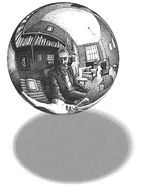Whatever happened to Herschel Grynszpan?

Dear Answer Man:
Herschel Grynszpan murdered a German diplomat in Paris in 1938. The response in Germany was the Night of Broken Glass.
The Germans occupied Paris in 1940. This murderer was transferred to German custody. Although one might anticipate an immediate execution of the Jewish assassin of a German diplomat, this did not occur.
Jewish sources currently say he died in 1943. But I have seen references to his survival of Nazi captivity that refer to other Jewish sources.
What is the truth?
Thanks,
R.E.Reis
Chicago

AnswerMan Replies:
As we know, Herschel Grynszpan was a Polish Jew who shot a relatively minor German bureaucrat named vom Rath in Paris on November 7, 1938. The direct result of this rather foolish murder was the Kristallnacht (Night of Broken Glass) pogrom in Nazi Germany a few days later.
Eventually Grynszpan ended up in German custody and seems to have spent most of the war in various camps. He doesn't appear to have survived the war. The above is basically all we know for sure, but it has led to a tremendous amount of web-spinning. There is a reason for this.
Whenever there is an event that affects people strongly or painfully there is a desire to put all the pieces together in a way that makes sense of the event. But when the information isn't available, that desire for a more complete picture doesn't just go away. In this case, as with many cases from World War Two and the Holocaust, we have large gaps in the empirical and documentary record, but that hasn't kept people from making stuff up to fill in the gaps.
And so it is with Grynszpan. For example, there is surprise that he wasn't killed immediately, because people have been taught (erroneously, I might add) to think that the Nazis killed people all the time in their prisons and camps, especially when they were Jewish people. And so the next thing that happens is that Grynszpan is elevated to some kind of arch conspirator and special prisoner that the Germans dare not kill, sort of a Man in the Iron Yarmulke.
The vom Rath murder appears to have been Herschel's personal response to the plight of his parents, who were being whipsawed along with thousands of other Jews between Germany and Poland at a time when neither nation wanted them. But because this killing led to the “Night of Broken Glass”, which in retrospect seems to be the beginning of the Jewish ordeal, there is a powerful need to make more of the murder, and of Herschel, than either deserve.
As a result we hear all kinds of other stories, about a possible homosexual relationship, or which turn Herschel into some kind of martyr, or make him a prophet of the Holocaust, or even a freedom fighter, while still others have him surviving the war and settling down in Paris like a World War Two version of Anastasia. If you are interested in that kind of stuff, read Andy Marino's Herschel: The Boy Who Started World War II, and Gerald Schwab's The Day the Holocaust Began: The Odyssey of Herschel Grynszpan. On the other hand, the best guides to Kristallnacht and its causes and consequences are David Irving's Goebbels and Ingrid Weckert's Flash Point.
The balance in my view is that the Germans kept him imprisoned because they didn't quite know what to do with him. My guess is that, if he didn't die of disease in the closing months of the war, he might well have been shot during the final retributive wave of shootings that took place during the last days and that took the lives of other notables like Dietrich Bonhoeffer and Admiral Canaris. But nobody knows for sure: and unlike other Holocaust authorities, when the Answer Man doesn't know for sure he doesn't fall back on pretending or making things up.
For more details on this subject, AnswerMan! recommends:
Bibliographic information about this document: n/a
Other contributors to this document: n/a
Editor’s comments: n/a
